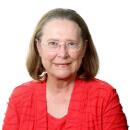Verdugo Views: A resident’s close-up view of a family who owned local camera shops
- Share via
When Ed Cooley graduated from Toll Junior High and prepared to enter Hoover High, he left his job delivering newspapers and began working part time in a camera store.
Cooley was reminded of those years when I sent him a copy of this photo from Hoover’s 1963 Scroll. I found it while looking through yearbooks in the Glendale History Room at Glendale Central Library and recognized Cooley from the days when we were both members of Purple Circle, a parents’ support group at Hoover.
He replied by email.
“Thank you very much for sending this ... have not seen it for over 50 years, and don’t think I have a copy. I transitioned from a Glendale News-Press paper route to part-time work in Woodall’s Camera Store. After graduation from Hoover, they let me set my hours all through a very elongated college career,” he wrote.
Cooley’s family had come to Glendale in 1945. He started school at John Muir Elementary. Then, after a move to Alma Street, he enrolled at Keppel.
His first paper route, for the afternoon Mirror, stretched from Glenoaks Boulevard to Kenneth Road and from Pacific to Highland avenues. Later, he acquired a coveted News-Press route in somewhat the same area. While on his route, he often stopped by Woodall’s Camera Store on Pacific and eventually got a job there.
The Woodall camera stores were a family affair. Noah and Ruby Woodall, who had three children, opened a store in Tujunga in 1945. A few years later, in 1953, they purchased Hagen’s Camera Store on Pacific and moved the photo lab there. When their son Dalton returned from a stint in the U.S. Army, he took over that location.
Later, daughter Jeannine and her husband, Eugene Rickman, ran the photo lab, according to information provided by Christa Woodall, granddaughter of Dalton Woodall. Son Lynn managed the Montrose branch when it opened in 1955.
Dalton Woodall was in charge on Pacific when Cooley was hired to stock shelves, dust the merchandise and sweep the floors.
“In my early years, Noah and Ruby were running the Tujunga store, and I would help out there at times,” Cooley wrote in one of a series of emails. He also went to the Montrose store, as needed.
After graduating from Hoover in 1960 and enrolling at Glendale College (now Glendale Community College), Cooley continued at Woodall’s. By then, he had a set of keys in order to open and close the store.
Plus, he kept all of the accounts receivable, did the billing and organized photo files; but he never did photo processing.
They were one of the first camera shops in Los Angeles to have their own color photo finishing lab,” Cooley wrote. That was “long before the ‘one-hour photo’ stores sprouted up in the malls.”
He met Peggy Russ, graduate with the Hoover Class of 1961, when they were in the same speech class at GC, and they began studying together. Her parents were some of Woodall’s best customers, Cooley said.
“She would come in to pick up photos. Dalton kept encouraging me to ‘date’ her,” Cooley wrote.
After three years at GC, he transferred to San Fernando Valley State College — now CSU Northridge — graduating in 1967, the same year he was hired by Xerox and the same year he and Peggy were married.
Cooley added that, years after he worked at Woodall’s, both of his children, Charlie and Jeanne, worked in the last remaining store — on Honolulu Avenue in Montrose.
“Jeanne helped them close their last store in the early 1990s,” he wrote.
He still has the wooden sign that hung outside that store.
“No one wanted it, and I didn’t want it to hit the trash. It stills hangs in our garage ... a very fond memory of our family’s warm relationship with this really fine family,” Cooley wrote.
Over the years, Cooley has kept in touch with some of the Woodalls.
“I still get almost emotional when I think about the wonderful Woodall family, including the founders, Noah and Ruby Woodall, who had come west from Arkansas. They were very good to our family,” he wrote.
He added that he has always credited them for a large portion of his success in the business world.
“The paper routes and the camera shop retail experience were far more valuable than the degree,” Cooley wrote.
